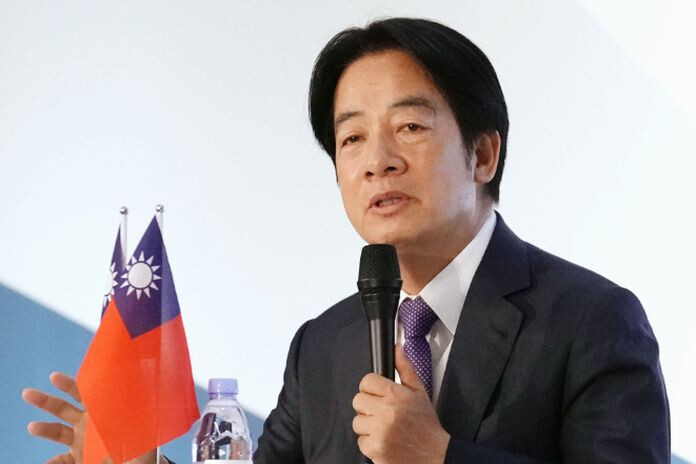
In a speech commemorating the end of World War II, Taiwan's President Lai Ching-te likened Taiwan to European nations on the brink of conflict with Nazi Germany in the 1930s, issuing a warning about China's military threats. This statement, delivered at Taiwan's first official commemoration of the end of World War II, carries profound significance.
On May 8 (local time), in a speech to foreign diplomats in Taipei, President Lai stated, "Eighty years after the end of the European war, the message of history is clear. Today, 80 years later, we share the same values and face similar challenges as many democratic countries that participated in the European war." This remark, made amid increasing Chinese military pressure, aims to raise international awareness of Taiwan's security situation while emphasizing solidarity with democratic nations.
World War II is a sensitive topic in cross-strait relations. At that time, China was under the rule of the Kuomintang (KMT), which fought against Japan alongside the Chinese Communist Party. Later, the KMT resumed its civil war with the Communist Party, and after its defeat in 1949, retreated to Taiwan and established the Republic of China, which remains Taiwan's official name. Meanwhile, the Chinese Communist Party established the People's Republic of China in Beijing.
Although President Lai did not directly mention China, he urged "freedom-loving people and nations" to cooperate against authoritarian regimes. He emphasized, "Taiwan and Europe jointly face the threat of a new totalitarian group," and added, "The bitter experience of World War II teaches us that appeasement only makes aggressors more greedy and expands their ambitions."
The event began with footage of the Normandy landings and an audio recording of Winston Churchill's famous speech, "We shall fight on the beaches." Attendees included Ruth Bradley-Jones, the UK's representative to Taiwan, and Lutz Güellner, the head of the European Economic and Trade Office in Taiwan, who also delivered speeches.
Marcin Jerzewski, head of the European Values Center for Security Policy's Taiwan office, analyzed that President Lai "intends to send a message that Taiwan and Europe's security and prosperity remain interconnected," and "aims to prevent European partners from ceasing their engagement in Indo-Pacific and Taiwan Strait security due to concerns about the withdrawal of US security guarantees."
President Lai is leading Taiwan amidst a complex geopolitical situation. China claims Taiwan as its own territory and has vowed to use force if necessary to achieve unification. Particularly after the potential return to power of a certain individual in the US, a key security backer of Taiwan, concerns about the US commitment to Taiwan's defense have grown, further increasing Taiwan's security anxieties.
China has frequently conducted blockade exercises against Taiwan and is intensifying "gray zone" tactics such as spreading disinformation.
Wentai Sung, a researcher at the Atlantic Council's Global China Hub, believes President Lai "wants to show that Taiwan wants to be a partner, not just a beneficiary of Western patronage."
President Lai's speech came the day after Chinese President Xi Jinping arrived in Moscow to attend commemorations marking the end of World War II. The events are expected to include a military parade with the participation of Chinese troops.
China's support for Russia in the Ukraine war has surprised Western leaders and raised concerns that China is drawing lessons for a potential invasion of Taiwan.
In an article published by Russian media, President Xi mentioned the cooperation between China and the Soviet Union during World War II and dedicated a significant portion to the implications of the war for China's claims over Taiwan.
Referring to this week's commemorations as the "80th anniversary of the recovery of Taiwan," President Xi emphasized, "No matter how the situation on Taiwan Island changes, no matter how external forces interfere, the historical trend that China will eventually be reunified and will inevitably be reunified cannot be stopped."
President Xi also expressed gratitude for Russia's support for "all the measures taken by the Chinese government and people to achieve national reunification."
President Lai's remarks are a strong message from Taiwan to the international community amid escalating Chinese threats. By recalling Europe's history, he underscores the severity of the security threats Taiwan faces and clearly expresses Taiwan's determination to counter common threats through solidarity with democratic nations. Furthermore, he urges Western countries, including the US, for continued support and attention towards Taiwan, while demonstrating Taiwan's own willingness to play an active role.
[Copyright (c) Global Economic Times. All Rights Reserved.]




























